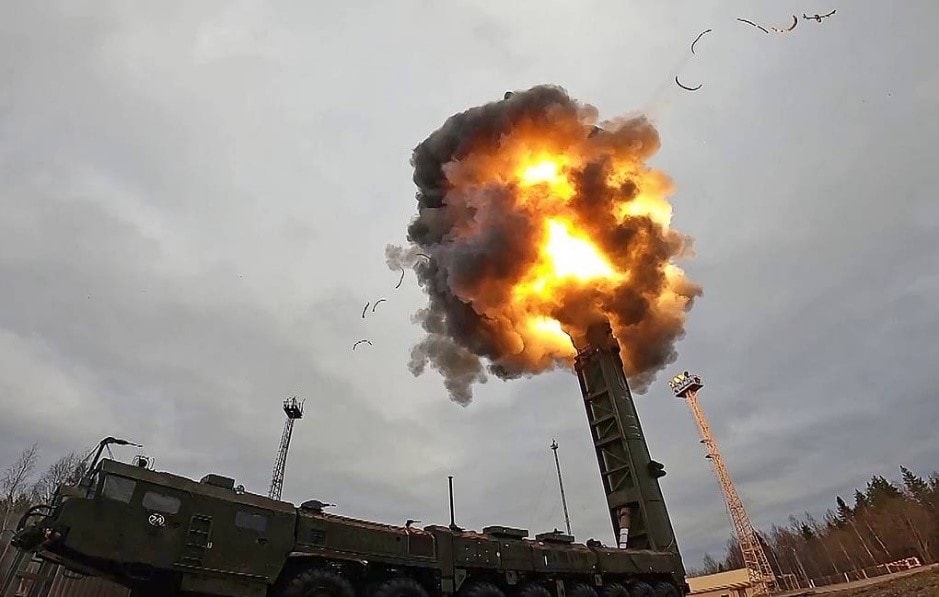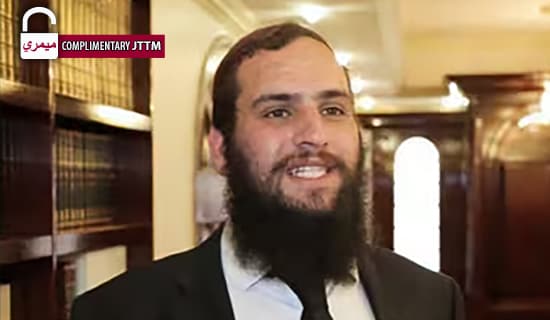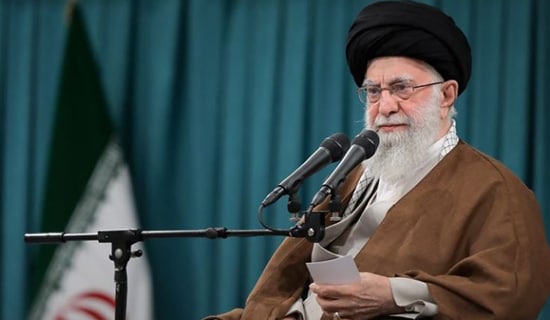The London daily Al-Hayat recently published a series of interviews with Muhammad Dahlan, member of the Palestinian Legislative Council and of Fatah's Revolutionary Council.[1] In the interviews, Dahlan said that the Al-Aqsa Intifada had done the Palestinians more harm than good. Speaking about Hamas, he called its leader Khaled Mash'al a "gang leader." He harshly criticized the organization's persecution and murder of Fatah members in Gaza, giving as an example the case of a senior Fatah member and ally of Hamas forced by Hamas to flee from Gaza to Israel, even though he was known to be wanted by the Israeli authorities. He said that Iran and Syria were involved in Hamas's decision making, and added that in his view, "there is not much difference between Al-Qaeda and Hamas."
Following are excerpts from the interviews:
The Al-Aqsa Intifada Did Us More Harm than Good
Al-Hayat: "You said that every time Yasser Arafat left on a [diplomatic] visit, Hamas would prepare an operation. Who carried out the suicide operations in the Palestinian territories [at the time], Hamas or [Islamic] Jihad?"
Dahlan: "Hamas and [Islamic] Jihad [carried out the operations], but later they were joined by Fatah. [Fatah] is a liberal organization and not an extremist religious one, but it also carried out martyrdom operations during the Intifada. I do not want to assess the harm and benefit of these operations at the moment, but based on a general assessment of the years of Intifada, [I would say that] the harm outweighed the benefit, and the proof of this is our present situation. I judge things by their outcome."
Al-Hayat: "Who was responsible for the militarization of the Intifada?"
Dahlan: "We were all responsible. I clearly admit – it was a collective mistake..."
Al-Hayat: "Do you think that the military operations inside the 1948 borders were a mistake?"
Dahlan: "Yes, they united the international community and the Israeli public against us. It would have been better to confine our operations to the territories occupied in 1967 and to military [targets]."
Al-Hayat: "So the operations in restaurants and against [other] civilian targets [were a mistake]?"
Dahlan: "A military operation is beneficial if it yields political profit. An operation is clearly a mistake if its outcome is political disaster. The amount of [Palestinian] blood spilled in the Intifada enraged us, and in the first two years, I was among those who were ruled by their emotions. Today I say that a person must not give in to emotion."
Al-Hayat: "Some say that Hamas hijacked the second intifada. Is this true?"
Dahlan: "Yes, it deflected [the intifada from the right track] towards an unknown goal. We used to sit with Hamas [members] and tell them, 'Calm down a little.' But then came the worst clashes, in which Fatah participated more than Hamas did, and in which 40% of the security apparatuses participated as well. We all made the same mistake. The fact that the goals of the intifada were never defined was a mistake to begin with. We never agreed on the goals..."
Hamas Is Establishing an Islamic Emirate in Gaza
Al-Hayat: "What did Yasser Arafat know about Hamas?"
Dahlan: "President Arafat was convinced that Hamas lacked any national Palestinian vision, aspiration or plan... Hamas saw President Abu 'Ammar [Arafat] in a negative light, accused him of treason, harmed him, and often sabotaged his national enterprise. Whenever he was on an official visit to Europe or Washington, Hamas carried out a [military] operation under the pretext of [continuing] the struggle, with the aim of embarrassing him and presenting him as weak..."
Al-Hayat: "Do you believe that Hamas [had partners] in its decision to take over Gaza?"
Dahlan: "I can't say, [because] I do not have the information. Unlike Hamas, we don't accuse [every] one we dislike of collaboration, treason, and heresy. The Hamas takeover of Gaza was perpetrated in the open, and Hamas worked day and night to achieve it. We warned its members that taking over Gaza and assassinating Fatah members would not benefit them..."
Al-Hayat: "Do you believe that Hamas plans to establish an Islamic emirate in Gaza"?
Dahlan: "It's not just a plan, it is already being implemented. They are firing judges and teachers and replacing them with their own people. They are taking over non-governmental organizations, even ones not affiliated with Fatah. [First] they said that they had a problem with Dahlan and his supporters. Then they attacked members of the [Palestinian Authority] Executive Committee and the Central Council, and arrested Dr. Zakariyya Al-Agha... Then they targeted Fatah members who were actually sympathetic to Hamas, driving them out of their homes [or] destroying their homes over their heads – because Hamas sees only itself. They [also] attacked Islamic Jihad members and confiscated their weapons, and closed the radio station of the Popular Front..."
Khaled Mash'al Is a Gang Leader
Al-Hayat: "What is the Helis clan affair?"
Dahlan: "The Helis clan is one of the big clans in Gaza. Forty-five of its members, belonging to different factions, were martyred in the last intifada. One of its members is Abu Maher Helis. [Hamas] fired missiles at his home and destroyed it, even though he was a friend and an ally [of Hamas]. We agreed to maintain friendly [relations with Hamas], even though I was against it, because this was the prevailing attitude in Fatah...
"Hamas [fighters] also broke into the home of Abu Ramzi Helis, killed his father-in-law, and forced [the family] to flee to Israel. Can you grasp how tragic it is when a Palestinian flees from another Palestinian and gives himself up to the Israelis? Abu Maher Helis is wanted in Israel, and Hamas knows this. He fled from Hamas' depraved [actions] in Gaza, after being their ally, and gave himself up to the Israelis, even though he knew he would be killed or arrested. Isn't that strange, and isn't it a humiliation and a defeat?"
Al-Hayat: "Do you know Khaled Mash'al?"
Dahlan: "Yes, my relations with him are proper. We met in Mecca and spoke naturally. [But] I have an opinion of him. I do not see him as a leader [of the Palestinian people], but as a gang leader. A man who sanctions the murder of a [fellow] Palestinian, and does not condemn it or regard it as strange, does not belong to the Palestinian people. He should have at least condemned [the murder of Palestinians]. Khaled Mash'al witnessed massacres. Is that [the behavior] of a statesman? Does he think that history will forgive and forget? Is Hamas proud [of these actions]? Hamas, once a jihad movement that fought Israel, has become a mere gang."
Al-Hayat: "But Hamas won the elections."
Dahlan: "That is true. It won the democratic elections fair and square, but [then] it turned its weapons on the Palestinian people. How can [members of] a Palestinian faction take a young Fatah [member] from his home and murder him in front of his children? The entire [Palestinian] struggle is being dumped into the dustbins of history. [Granted,] mistakes can sometimes happen, like someone dying in prison, and then you express sorrow. [But] you do not boast and say '[We] have purged Gaza.' Purged it of what? [Purging it] of Fatah members and members of other factions [maybe], but [purging it] of ordinary residents...?"
Al-Hayat: "Can Hamas bring down the Palestinian Authority?"
Dahlan: "I don't think so. The only solution to the Palestinian crisis is to reach an agreement. I have serious criticism of Hamas, which [sacrificed] the Palestinian cause for the illusion of an Islamic emirate in Gaza and [its] coup against the PA... Hamas brought destruction upon itself and upon the Palestinian people, but despite my dislike for its ideas, ways, methods, plans, and members, I still believe that the only solution [available] to Abu Mazen [Palestinian Authority President Mahmoud Abbas] and to Hamas, [if the latter wants] to save itself, is an agreement and mutual concessions...
"Hamas is trying to establish [its] illusory Islamic emirate in Gaza through fire, blood, arrests, smuggling, and executions. They have changed from jihad fighters into cigarette smugglers. Is this an ingenious regime? It is an illusory regime. Therefore, the only [way] to save Hamas from itself and to save the Palestinian cause is [to reach] an agreement – but not a temporary agreement that divides [the control over Palestine between the PA and Hamas based on] the interests [of each side], but an agreement on a political plan, security [procedures] and policy..."
Hamas Used Iranian Funds to Murder Fatah Members
Al-Hayat: "Do you believe that Hamas makes its decisions on its own?"
Dahlan: "Of course not."
Al-Hayat: Who makes the decisions?"
Dahlan: "Iran, to a large extent, and Syria, to a limited extent, [both] participate in the decisions of Hamas in Gaza and of its headquarters in Damascus. [This does not apply] to Hamas in the West Bank."
Al-Hayat: "Iran has influence in Khaled Mash'al's decisions?"
Dahlan: "Of course."
Al-Hayat: "And Syria?"
Dahlan: "Syria is against the internal division among the Palestinians, [while] Iran is indifferent [to the Palestinians' plight] and thinks only of its own interests... At some point, [Syria] may have [also] been indifferent, but today it is in favor of internal unity and the strengthening of the Palestinians vis-à-vis Israel.
"Iran, [on the other hand], thinks only of its own interests, namely in [strengthening] its influence in Lebanon, Iraq and Palestine by [providing] financial support, training [fighters], etc. Did Iran ever support the Palestinian cause, even for a single day? Why doesn't it come to liberate Palestine? What is keeping it [from doing so]?... It has only paid Hamas to kill Fatah members in Gaza, not [to promote] education and health..."
Al-Hayat: "How much influence does Iran have in Gaza today?"
Dahlan: "I think Iran is holding Hamas hostage. [In fact, Hamas] does not hide this fact, but explains it by saying that Fatah and the PA are allies of the U.S., [an alliance] which harms [the Palestinians]. [But the fact is that] we and the Americans have mutual interests, since they are the only ones that can pressure Israel. But when they pressured Abu Mazen not to attend the [Arab League] summit in Damascus, he refused and went to Syria [anyway]..."
Hamas Is No Different than Al-Qaeda
Al-Hayat: "How do you regard the presence of Al-Qaeda in Gaza?"
Dahlan: "The environment [there] suits them. Gaza is in complete chaos and full of weapons. Hamas and all other sources of authority [there] have lost their vision and strategy. That is a suitable environment for Al-Qaeda. From my perspective, there is not much difference between Al-Qaeda and Hamas. They are all the same."
Al-Hayat: "Khaled Mash'al sees Hamas as a guarantee against Al-Qaeda's infiltration of Gaza."
Dahlan: "Has Hamas [done anything] to be proud of? The actual outcome of their rule [in Gaza] is some 600 people murdered every year, 2,500 wounded, 800 or 900 crippled, and thousands of people arrested. This 'Islamic model' has nothing to do with the tolerant Islam that we learned in university and in school..."
Al-Hayat: "What [sort of organization] is Jaysh Al-Islam in Gaza'?"
Dahlan: "Jaysh Al-Islam is headed by a member of the Dughmush clan, who publishes his communiqués openly, not in secret. He was an officer in the [PA] Preventive Security Apparatus prior to the Intifada. I do not know him personally. The Intifada gave rise to many factions, groups and interests, and enabled Hizbullah, Iran and [various] organizations to infiltrate Gaza."
Al-Hayat: "Is Jaysh Al-Islam affiliated with Al-Qaeda?"
Dahlan: "Ideologically, perhaps. But the important [point] is that it is not Hamas, though Hamas exploited it at a certain stage to carry out tasks and assassinations against the PA. [Hamas and Jaysh Al-Islam] carried out many operations by mutual agreement, including the assassination of [senior PA official] Moussa Arafat, and later they blamed me [for his assassination]..."
The Camp David Negotiations Failed over the Jerusalem Issue
Al-Hayat: "Was Arafat firm in his negotiations [with Israel]?"
Dahlan: "Very. He was very courageous in his relations with Israel. He had the courage to say no, to shout and to disagree with others, but also to agree – though ultimately he was weak when he had to take weighty decisions. He saw himself as the leader of the Islamic nation.
"In the negotiations, he took enormous interest in the Cave of the Patriarchs [in Hebron] and in Jerusalem. What was written, namely that the Camp David negotiations failed over the refugee issue, is incorrect. It failed over the issues of Jerusalem and Al-Aqsa. We would present our reports, but he wouldn't listen attentively. When we finished, he would say: 'Where [are we standing] on Al-Aqsa?' We would say that no agreement had been reached yet, and he would reply: 'Go finish [negotiating].' Whoever claims differently does not know or has heard [inaccurate rumors] from someone.
"Jerusalem was the pivot of President Arafat's life. The question that interested him most was whether he would issue his declaration of the [establishment of the Palestinian] state from Jerusalem or from somewhere else..."
Endnote:
[1] Al-Hayat (London), August 30, 2008-September 3, 2008.








